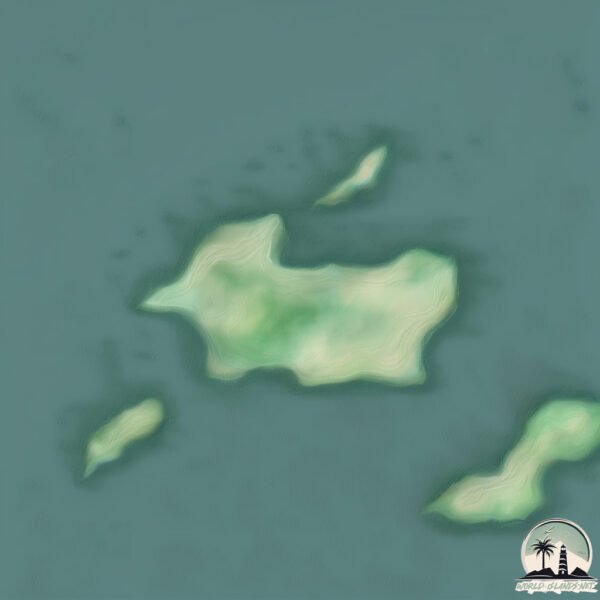Wolfe

Welcome to Wolfe, a Temperate island in the South Atlantic Ocean, part of the majestic Atlantic Ocean. This guide offers a comprehensive overview of what makes Wolfe unique – from its geography and climate to its population, infrastructure, and beyond. Dive into the details:
- Geography and Size: Explore the island’s size and location.
- Climate and Weather: Weather patterns and temperature.
- Topography and Nature: Uncover the natural wonders of the island.
- Infrastructure and Travelling: Insights on reaching, staying, and making the most of your visit.
- News and Headlines: Latest News.
Geography and size of Wolfe
Size: 1.287 km²
Coastline: 5.7 km
Ocean: Atlantic Ocean
Sea: South Atlantic Ocean
Continent: South America
Wolfe is a Small Island spanning 1.3 km² with a coastline of 5.7 km.
Archipel: Falkland Islands – Located in the South Atlantic Ocean, this British Overseas Territory is known for its rugged terrain, biodiversity, and historical significance.
Tectonic Plate: South America – A major plate covering the South American continent and part of the Atlantic Ocean, known for the Andes mountain range and significant seismic and volcanic activity.
The geographic heart of the island is pinpointed at these coordinates:
Latitude: -52.02269599 / Longitude: -59.67630461
Climate and weather of Wolfe
Climate Zone: Temperate
Climate Details: Subpolar Oceanic Climate
Temperature: Cold Summer
Climate Characteristics: Predominantly cold with cool summers and no dry season. Often found in coastal areas at higher latitudes or on islands.
Topography and nature of Wolfe
Timezone: UTC-04:00
Timezone places: America/La_Paz
Max. Elevation: 7 m
Mean Elevation: 6 m
Vegetation: Shrubland
Tree Coverage: 3%
The mean elevation is 6 m. The highest elevation on the island reaches approximately 7 meters above sea level. The island is characterized by Plains: Flat, low-lying lands characterized by a maximum elevation of up to 200 meters. On islands, plains are typically coastal lowlands or central flat areas.
Dominating Vegetation: Shrubland
Dominated by shrubs and small bushes, these areas are typical in dry, rocky, or sandy environments, as well as in regions with poor soil fertility. Wolfe has a tree cover of 3 %.
Vegetation: 2 vegetation zones – Low Diversity Island
Islands with two distinct vegetation zones offer slightly more ecological variety. These zones could be due to differences in elevation, moisture, or other environmental factors. While still limited in biodiversity, these islands may offer a contrast between the two zones, such as a coastline with mangroves and an inland area with grassland.
Infrastructure and Travelling to Wolfe
Does the island have a public airport? no.
There is no public and scheduled airport on Wolfe. The nearest airport is Mount Pleasant Airport, located 137 km away.
Does the island have a major port? no.
There are no major ports on Wolfe. The closest major port is STANLEY, approximately 207 km away.
The mean population of Wolfe is 0 per km². Wolfe is Uninhabited. The island belongs to Falkland Is..
Continuing your journey, Great is the next notable island, situated merely km away.
Falkland Is. is classified as Developed region: G7: Group of Seven – Major advanced economies, including Canada, France, Germany, Italy, Japan, the United Kingdom, and the United States. The level of income is High income: OECD.
News – Latest Updates and Headlines from Wolfe
Stay informed with the most recent news and important headlines from Wolfe. Here’s a roundup of the latest developments.
Please note: The data used here has been primarily extracted from satellite readings. Deviations from exact values may occur, particularly regarding the height of elevations and population density. Land area and coastline measurements refer to average values at mean high tide.
